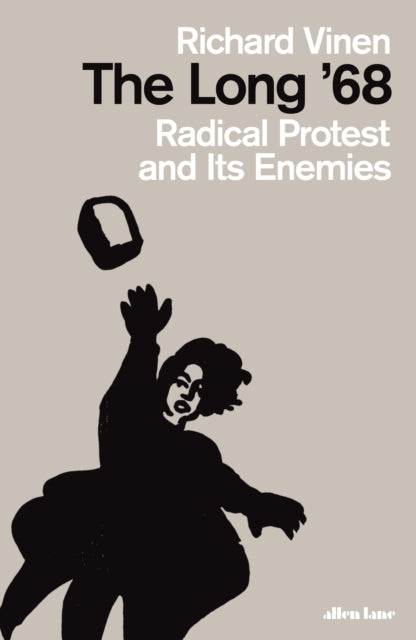
The Long '68: Radical Protest and Its Enemies by Richard Vinen
For those old enough to remember it, 1968 was “an exciting time to be alive”, said Piers Brendon in the Literary Review. In and around that year, protest movements broke out across western Europe, America and beyond, inspired by causes ranging from opposition to the Vietnam War to support for the liberation of black people, women and gay people. The severest unrest occurred in France, where the student-led événements of May 1968 resulted in the “worst street violence since the Second World War”. In Britain, by contrast, 1968 was a more sedate affair, typified by protesters and policeman linking arms at one rally and jointly singing Auld Lang Syne. In The Long ’68, historian Richard Vinen focuses on events in four countries: the US, France, West Germany and Britain. While the book’s “analytical” approach prevents Vinen from fully capturing the heady atmosphere of 1968, this is still an “able” study, underpinned by “encyclopaedic” knowledge.
One thing Venin demonstrates in this “excellent” book is that “1968 was not quite as ’68-ish as we have come to assume”, said Philip Hensher in The Spectator. This was, after all, the year when President Nixon was elected, and some of the largest marches in the UK “were in support of Enoch Powell’s most notorious speech”. Moreover, ideas about what constituted political or personal progress could differ radically: at Lanchester Polytechnic in 1971, students greeted Margaret Thatcher with cries of “Fascist pig! Get her knickers off!” – while Eldridge Cleaver of the Black Panthers proposed that “rape could be an insurrectionary act”.
In the longer-term, too, 1968 had some dark consequences, said Andrew Hussey in the Financial Times. Much of the violence of the ensuing decade – including that of the Red Brigades in Italy and the Baader-Meinhof Group in West Germany – originated in the ’68 generation’s disgust with the “compromises of social democracy”. More generally, Vinen argues that the ideas of 1968 “fizzled out” as baby boomers “faded into middle age and centrist politics”. And yet in concluding that “in most ways ’68 was thumpingly defeated”, I wonder if Vinen hasn’t missed a trick, said Andrew Marr in The Sunday Times. Many of today’s radical rights campaigners, as well as Jeremy Corbyn and his followers, seem to “drill back directly” to that period. Were time travellers from Leeds and Sussex Universities in 1968 to attend a Momentum rally, I suspect they would “feel completely at home”.
